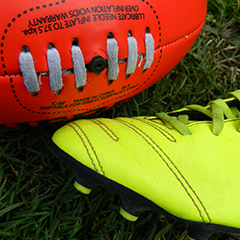Dr Stacey Parker and PhD candidate Amelia Moyes from UQ's School of Psychology featured in an ABC Article about the tough reality of elite sporting careers coming to an end.
For retiring athletes, it is not just a career change, but a complete lifestyle adjustment and Dr Stacey Parker said it was due to the "sporting dream" being so encompassing.
"It's such a big part of their identity," she said.
"The majority [of athletes] do report feeling some significant distress and identity loss when making that transition."
Research has found around 16 per cent of athletes suffer severe mental health issues, like substance abuse, and even homelessness in life outside competitive sport.
Unfortunately, the remaining 84 per cent are not exempt from a negative experience.
Dr Parker said it was because a really important part of their identity was gone.
"Also really quite strong support networks, in terms of teammates or other colleagues in sport, coaches, the sporting organisation that they were part of, they lose a significant source of their social support as well," she said.
It was also not uncommon for elite athletes to notice dramatic physical changes.
Athletes go from having daily doses of serotonin from all the exercise and when this suddenly decreased, it played with the chemistry in the human body, most notably, their mood.
With the reduced training, their nutrition would also need to adapt, but psychologist Amelia Moyse said disordered eating could be a byproduct.
"Because their intake needs have changed so significantly, and they do struggle at times to find the new balance at that phase of life," she said.



